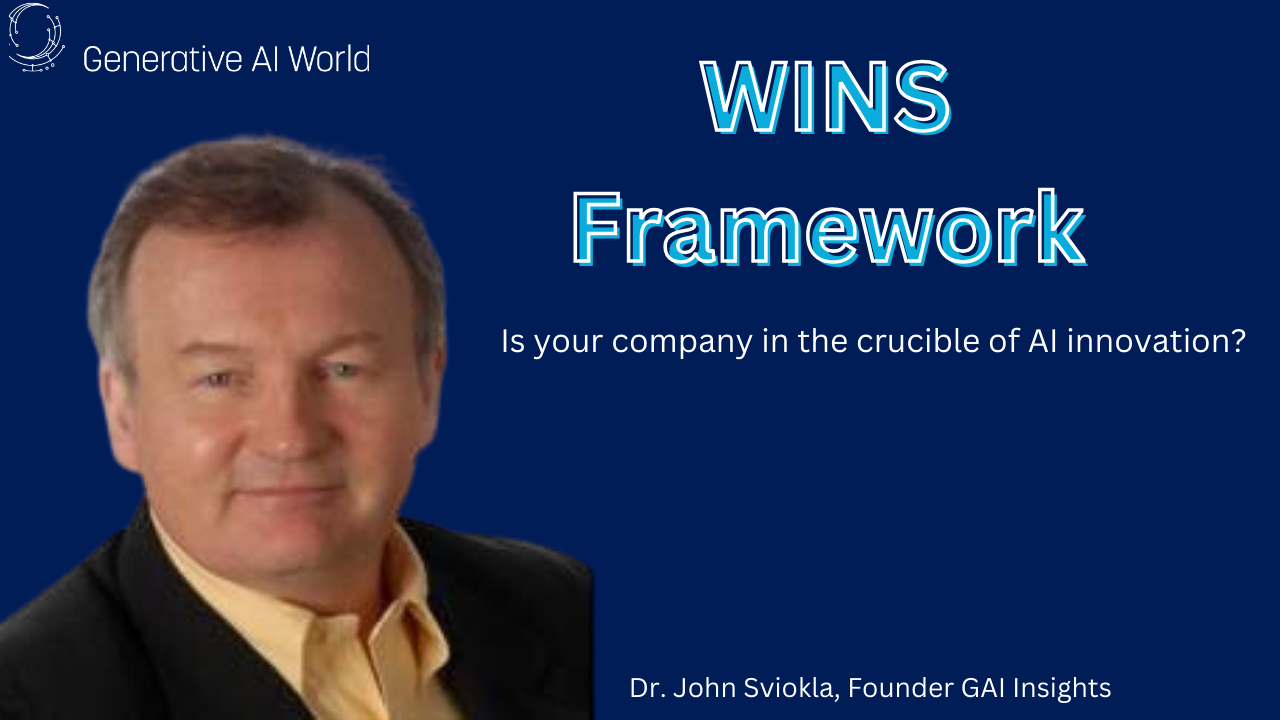Dr. John J. Sviokla: 3 Takeaways on AI
At Generative AI World, we heard from Dr. John J Sviokla, co-founder of GAI Insights and former business leader at PwC; here are three of his main...
The most important invention in history, according to Al Chandler and the concept of strategy instruction, was the creation of managerial capitalism. Here we have the idea of modern managerial organizations, which we can categorize into two main types: functional and divisional strategy and structure. The key premise? It’s that growth without a corresponding new structure leads to inefficiencies. That can prompt an evolutionary need for the next newest organizational form; we might refer to that metaphorically as "animals" within the organizational context.
In the 1990s, there was a significant shift towards what some called "M-form" organizations. Dr. John talked about documenting this evolution in a paper in 2000, later confirmed in the book "Changing Fortunes." These new organizational forms were characterized by being modular, on-demand, scalable, interoperable. They had a flow of information that was separate from the organizational structure. A prime example of this is Amazon, which had 373,000 employees compared to Walmart's 282,000, growing at rates of 12% and 6% per year, respectively. They had different growth rates, yes, but Amazon's market capitalization was four times that of Walmart's, illustrating the effectiveness of the M-form organizational strategy.
Amazon's success, Dr. John suggested, can be attributed to Jeff Bezos's memo about services, as Bezos emphasized the importance of service-oriented architecture. We now see this prescient argument evolving into what is termed the "A-form" organization. The A-form represents a further advancement from the M-form, transitioning from a multi-divisional network to a more agent-based and modular structure. The A-form can be envisioned as a platform with policies, participating in quasi-markets similar to the Amazon marketplace, integrating both internal and external participants. Yes, that sounds technical, but in key ways, Dr. John points out, it describes the landscape of enterprise and its outcomes.
Want some examples of modern applications of the A-form concept? Think. Dr. John says, about program trading, where smart trades are executed by agents across various marketplaces, and dark pools like those operated by Goldman Sachs and Fidelity. Dark pools often conduct trades internally without routing through traditional exchanges like the New York Stock Exchange. This agent-based approach is also around in other areas like fintech. You might see it, he posits, in areas such as NFT trading, not to mention shopping, where agents autonomously make decisions based on predefined policies and contexts, sometimes cutting out the human in the loop.
The fundamental shift with A-form organizations, Dr. John surmises, is the reallocation of cognitive responsibilities between humans and machines, both individually and collectively, based on context and confidence. This shift marks a significant departure from traditional managerial capitalism to a more dynamic and responsive organizational model. The A-form is expected to be as dominant over the M-form as the M-form was over earlier organizational models, leveraging economies of scale and scope unprecedented in history.
Dr. John shows us how A-form organizations will operate on different timescales, making decisions at nanospeed, rather than at human speed. We’re likely to see rapid evolutionary changes, something like experiencing a billion years of evolution within a year. These organizations want to achieve performance frontiers and market capitalizations that blow away the numbers of the past, representing a new pinnacle in the evolution of organizational structures. The transition from M-form to A-form will be crucial for existing organizations to remain competitive in this rapidly evolving landscape.
This evolution is closely tied to the integration of AI Strategy and GenAI Solutions, driving AI Business Transformation across various sectors. The implementation of AI in these new organizational forms, termed AI Implementation, is a key factor in their efficiency and responsiveness. GenAI Insights provide valuable data and predictive analytics, further enhancing decision-making processes and operational efficiency in A-form organizations. With that in mind, we might consider that the future of managerial capitalism is intricately linked with advanced AI technologies, shaping the next generation of organizational strategies and structures.

At Generative AI World, we heard from Dr. John J Sviokla, co-founder of GAI Insights and former business leader at PwC; here are three of his main...

For the love of green beans and other good food everywhere, can we please stop using the term "hallucination" when talking about Generative AI? It’s...
.png)
Every workday, our AI analysts review GenAI news, labeling interest items Essential, Important, or Optional. Here are some of the top items that made...
Trusted by companies and vendors around the globe - we help you cut through the noise and stay informed so you can unlock the transformative power of GenAI .
Join us at this year's Generative AI World! Hear from enterprise AI leaders who are achieving meaningful ROI with their GenAI initiatives and connect in-person with the GAI Insights members community including C-suite executives, enterprise AI leaders, investors, and startup founders around the world